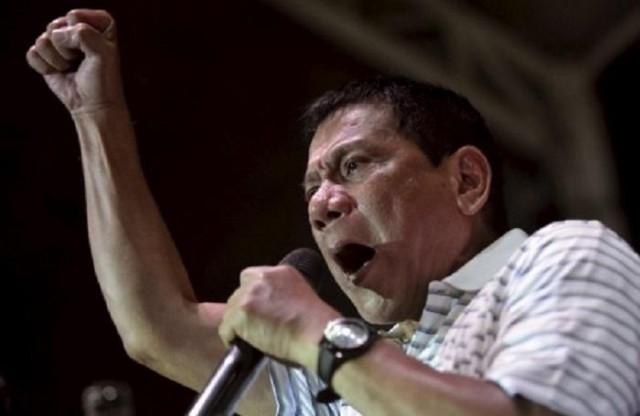In this strange moment of global unrest, the common denominator among questionable political decisions in various countries on different continents seems to be that each state wants someone to force a spirit back into the bottle. Often, the citizens can’t even precisely name the demons they want under cork.
In America, the Trump campaign ran against soaring murder rates (which don’t exist) and the extreme criminality of immigrants (not a reality), among other fictions. Globalization and income inequality played a key role in his narrow election, allowing the dangerous demagogue to appeal to dormant racist feelings, blaming (non-white) others for the plight of his base. You could say the same of the UK and the Brexit vote.
There’s no doubt the Philippines, currently led by the remorseless murderer and popular president, Rodrigo Duterte, had a genuine and severe narcotics and crime epidemic, but the people made an extreme choice when they knowingly elected a vicious, shoot-first madman who has unloosed murder squads on suspected drug dealers and whomever else he deems their accomplices. He is also, ironically, perhaps a pillbilly.
Even in this beleaguered island country, though, some of the dissatisfaction driving the nation into a potential Duterte dictatorship stems from issues that sound strikingly Western: wealth inequality, lack of opportunity, distrust of the government.
As Ernest Bower, an expert on the region told Time a year ago: “They wanted to take a wrecking ball to what they see as an establishment that has not given them a fair hand over the last five decades…It’s a big risk, but they were willing to take it.” In that same piece, Professor Teresa S. Encarnacion Tadem asserted: “They like the personality of Duterte — because he’s the most authentic. With him, what you see is what you get.” Seem familiar?
In “Duterte’s Last Hurrah: On the Road to Martial Law,” the second part of James Fenton’s excellent New York Review of Books reportage, the author writes that an increasingly chaotic situation may result in an authoritarian regime for the Southeast Asian country.
An excerpt:
Today by contrast the pretense of due process is impossible, because the man at the top simply blows it away. One of Duterte’s chief selling points as a leader is that he doesn’t give a shit. So, when he gets in front of any crowd, he will say whatever he thinks will make an impact at that very moment, and it is striking that most of the most shocking things we have learned about Duterte have come from his own mouth. For instance, it was Duterte who compared himself to Hitler:
Hitler massacred three million Jews. Now there is three million, what is it, three million drug addicts [in the Philippines] there are. I’d be happy to slaughter them. At least if Germany had Hitler, the Philippines would have [me]. You know my victims. I would like them to be all criminals, to finish the problem of my country and save the next generation from perdition.
It was Duterte who revealed that he had been abusing fentanyl, the synthetic opioid—the drug involved in the deaths of both Michael Jackson and Prince, which is supposed to be a hundred times more powerful than morphine. He needs painkillers to combat both his daily migraines and the pain from a motorcycle accident, which damaged his spine. However, when he saw the reaction to this revelation, he thought again. “Fools,” he said, “I just made up that story and you believed it.”
Addicted or not, he has, on his own admission, four concurrent illnesses: acute bronchitis, regular migraines, Barrett’s esophagus, and Buerger’s disease. But as he is careful to point out, not cancer. His mortality, however, does seem to weigh upon him and he often alludes to it. Speaking to members of the Filipino community in Cambodia in December, he said: “This is my last hurrah. After this, 77. I am not sure if I will still be around by the end of my term.”
So far, Duterte’s war has been largely against the softest of targets—drug users and small-time pushers, pedicab drivers and the like, whose families are too poor to hit back in any way. None of them can afford to sue the police, or to mount any kind of campaign on behalf of the victims. It is out of the question.
Of course a campaign that is largely a war on the poor is going to be short on credibility, so Duterte has recently been raising his sights a little, and increasing his attacks on the mayors who are said to be involved in the “shabu,” or crystal meth, trade. In January this year he was quoted as saying: “As long as I’m president, these big ‘shabu’ dealers will die and the next batch would really be these mayors. I will call them and lock them up.” He has a thick dossier that he regularly displays during such speeches. “I will talk to them,” he said. “With the thick document I showed you, I will tell them, ‘Look for your name there, you son of a bitch. If your name is there, you have a problem. I will really kill you.’”•

